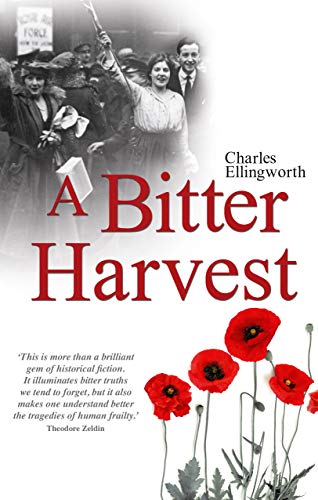A Bitter Harvest
I was looking forward to this book: 1919, the Great War is over, but a generation of men have been killed or wounded, and women are realising only a fraction of them will marry and have children. Rose and Isobel Richmond, daughters of a Dorset rector, and Ariadne Granville, their aristocratic cousin, embody this dilemma. Irish huntsman Julian Belmore is eyed with interest by two of the three but, unknown to them, is escaping his past and being blackmailed. Into this mix are dropped set pieces: tea with Thomas and Mrs Hardy, the Paris Peace Conference, and the scuttling of the German fleet at Scapa Flow.
Much of the action takes place in Dorset, the county where I live. “Hares with their stop-start flight,” “wheat stubble,” “a sparkling carpet of spiders’ webs” resonate. However, with fewer than 250 pages, there is too much going on, too many people. Characters and storylines are left suspended. There is a lot of explaining: the scuttling reads like a newspaper account. Characters make speeches to each other – especially at interminable meals – which does little to develop them so one loses track of who is speaking. None of them do I find particularly likeable. The brutal murder towards the end is dealt with lightly. The three women do not stand out, so it is often difficult to distinguish between them. Similar-sounding names, Richford, Richmond, Goodrich, further the lack of clarity. Modern expressions such as “don’t do” and “moved on” do not evoke the book’s era. Another edit might have eliminated these plus word repetitions, typos, errors of spelling and grammar, both French and English; “rectory” and “vicarage” are not interchangeable. I longed for the emotional heart of the book but never found it.










